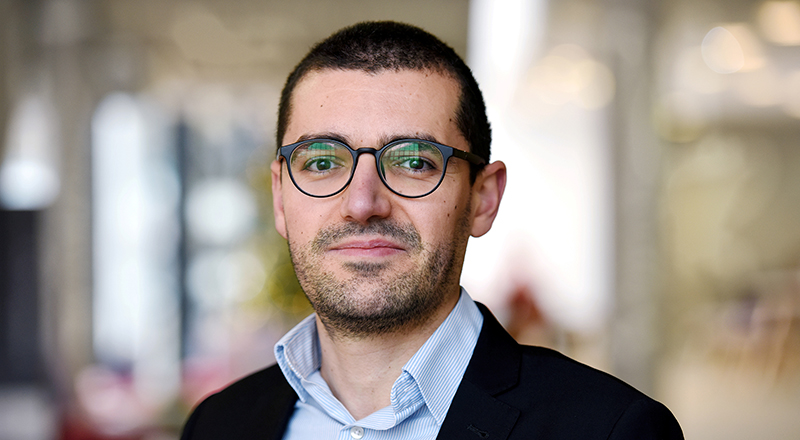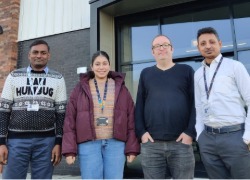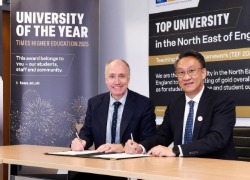International project looking at potential discoveries from extreme environments
Teesside University researchers are involved in an international research project which will unlock the industrial potential of extremophilic microorganisms.

The XTREAM research project aims to develop innovative and sustainable bioprocesses for fields such as pharma, medicine and agriculture, building on discoveries from extreme environments.
The 4 million Euro project, funded by the European Commission’s Horizon Europe programme, involves 13 international partners from universities, research organisations and industrial sectors.
This four-year initiative aims to explore and harness the unique capabilities of extremophiles, which are microorganisms that thrive in environmentally harsh conditions, using them for innovative applications in pharma, medicine, agriculture, feed and food sectors.
XTREAM will explore some of the planet's most extreme environments, including glaciers in Svalbard, Norway, using state-of-the-art drone and sensing technology that helps preserve and respect the ecosystems. Other locations include acidic mining sites such as Rio Tinto in Spain, geothermal springs, acid polluted sites in the UK, marine salterns, and Arctic deep-sea sponges.
The microbes from these areas could hold the key to new drugs, metabolites, and robust enzymes to boost the development of the European zero-emission, circular bioeconomy.
Project leader Antonio García-Moyano from NORCE Norwegian Research Centre, said: “Microorganisms from extreme environments are nature’s greatest problem-solvers. With XTREAM we aim to unlock their full potential to address critical challenges.”
Professor Claudio Angione, of Teesside University’s School of Computing, Engineering & Digital Technologies, is leading a Teesside University team which has received 350,000 Euro for their work as part of the initiative. He will lead the Work Package on integrative omics for ecology and adaptation, working with Teesside University colleagues Dr Annalisa Occhinpinti and Chaimaa Tarzi.
Professor Angione said: “Our key role will be the mathematical modelling of sponges and bacterial communities growing in extreme environments. We will also work on data integration and AI.
“Understanding from a mechanistic point of view how microbes thrive in the most extreme areas on Earth will be crucial as it will allow us to develop new drugs and enzymes with very low environmental impact, contributing to the European zero-emission, circular bioeconomy targets.”
Antonio García-Moyano added: “What makes XTREAM unique is its ability to accelerate the path from discovery to real-world applications, creating bio-based solutions that align with Europe’s green goals. It’s a strong counterargument to those who doubt the feasibility of sustainability-driven innovation.”
By developing advanced sampling methods, cutting-edge computational tools, and AI-powered analytics, the project aims to streamline the process of identifying valuable enzymes, chemicals, and other metabolites from these organisms. The project’s breakthroughs are expected to significantly reduce the environmental impact and cost of biodiscovery while accelerating the commercialisation of bio-based products.
XTREAM is a European project formed by 13 partners from seven European countries: NORCE Norwegian Research Centre, Universidad Autónoma de Madrid, GEOMAR Helmholtz Centre for Ocean Research Kiel, Wageningen University, Teesside University, Consejo Superior de Investigaciones Científicas, Instituto Nacional de Técnica Aeroespacial, University Centre in Svalbard, Syngens, Prozomix, Scienseed, ERINN and AlgaLif.
 Groundbreaking project to unlock nuclear energy's role in
...
Groundbreaking project to unlock nuclear energy's role in
... Start the new year by expanding your knowledge
Start the new year by expanding your knowledge  Teesside University strengthens long-standing partnership
...
Teesside University strengthens long-standing partnership
...